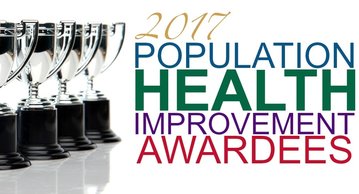|
The Master of Health Sciences in Clinical Leadership (MHS-CL) is offering for faculty/staff two courses for the upcoming fall term, August – November 2017. The courses focus on better understanding population health models of care and leading in complex health care environments – valuables skills to have in today’s ever-changing health care environment. Duke students/trainees are encouraged to apply as well if the topics are of interest to them.
Fall Course descriptions: CLP-214: Population Health Management Approaches This survey course provides an overview of the importance of population health, models of population health management, community and population health improvement, and considerations for evaluation of these efforts. It will give health care professionals a better understanding of concepts such as panel management, care coordination, practice improvement, accountable care communities, and patient/stakeholder engagement along with the systems and tools necessary to develop those models. Participants are encouraged to share population health improvement ideas in order to receive consultation in developing and implementing those initiatives. CLP-204: Leading in a Chaotic Environment In this course, students will examine outlooks on crisis management in turbulent and complex environments and learn how to anticipate and plan for crises by analyzing examples of successful crisis management. The study of leadership theory and practice will also be explored as students examine leadership types and styles, including their own More details about course directors, learning objectives and how to apply can be found here.
1 Comment
 The CTSI Community Engagement Core has awarded Population Health Improvement Awards to four community-research partnership teams. These awards seek to foster community-research collaborations that improve local health. Successful awardees demonstrated a co-developed research process that is mutually beneficial to both the community and research partner, engages the local community in the full spectrum of research, values the expertise of community partners, and facilitates relationships that improve population health. The selected projects, announced this week, are funded for one year beginning in July 2017. The projects awarded for 2017 aim to:
The first project, Testing Two Population Health Surveys for Identifying Socioeconomic Risk Factors in a Community Health Center, is a partnership between Lincoln Community Health Center Chief Medical Officer Howard Eisenson and Duke Professor of Community and Family Medicine George Parkerson. This community-research collaboration received an advanced partnership award to implement two new surveys for assessing social determinants of health at Lincoln Community Health Center, which serves predominantly low-wealth community of mostly racial and ethnic minority patients. After co-developing the best way to identify risk factors, this team’s goal is for a clinical champion for population health to work with internal and community resources to develop strategies for addressing the social determinants found to be most prevalent and causing highest risk for poor health outcomes in the community. Senior PharmAssist founder Gina Upchurch and Duke Investigator Daniel Parker received a co-development award to fund the second project, Connecting Agencies, Practices and Seniors through a Trusted Online Network (CAPSTONe). The team plans to leverage relationships in the community and the momentum of the recent IBM Health Corps work in Durham to help local seniors access the county’s public, private, and nonprofit community-based organizations. The pair recognized a need among community-based organizations for an online referral system to help Durham residents find resources already available to the community. The project will build on OurCareDirect.com, an existing on-line community referral tool created by Daniel Parker, to help older adults and their caregivers in Durham obtain needed resources. If successful, the online tool could then be adapted for other groups in Durham. Kelley Massengale, director of research and evaluation at the Diaper Bank of North Carolina, and Sarahn Wheeler, assistant professor of obstetrics and gynecology, have partnered for the third project, Engaging the Community to Understand and Eliminate Barriers to 17-P for Preterm Birth Prevention in Non-Hispanic Black Women. Massengale and Wheeler have been granted a co-development funding award to conduct focus groups to uncover patients’ perceptions of barriers to following healthcare provider recommendations about 17-P. Their objective is to develop and test clinic- and community-based interventions to increase uptake of prevention therapies for non-Hispanic Black women at high risk for preterm births. Durham Technical Community College Instructor Christine Dove, NCCU Assistant Professor Ruth Phillips, and Duke Center for Research on Personalized Health Care Investigator Connor Drake have partnered for the fourth project, Identifying Opportunities for Prevention in Emerging Adulthood. The period of emergent adulthood (ages 18-30) impacts the brain, social relationships, education, and work, yet little research has been done to assess how institutions of higher education identify and address the health needs of their student populations. This project will build on existing partnerships among Duke, Durham Tech, and NCCU to survey health behaviors and outcomes among students. The project aims to address the issue locally by translating quantitative health data and qualitative interviews with stakeholders into actionable reports for each institution involved in the project to facilitate population health improvement on campus. |

 RSS Feed
RSS Feed
